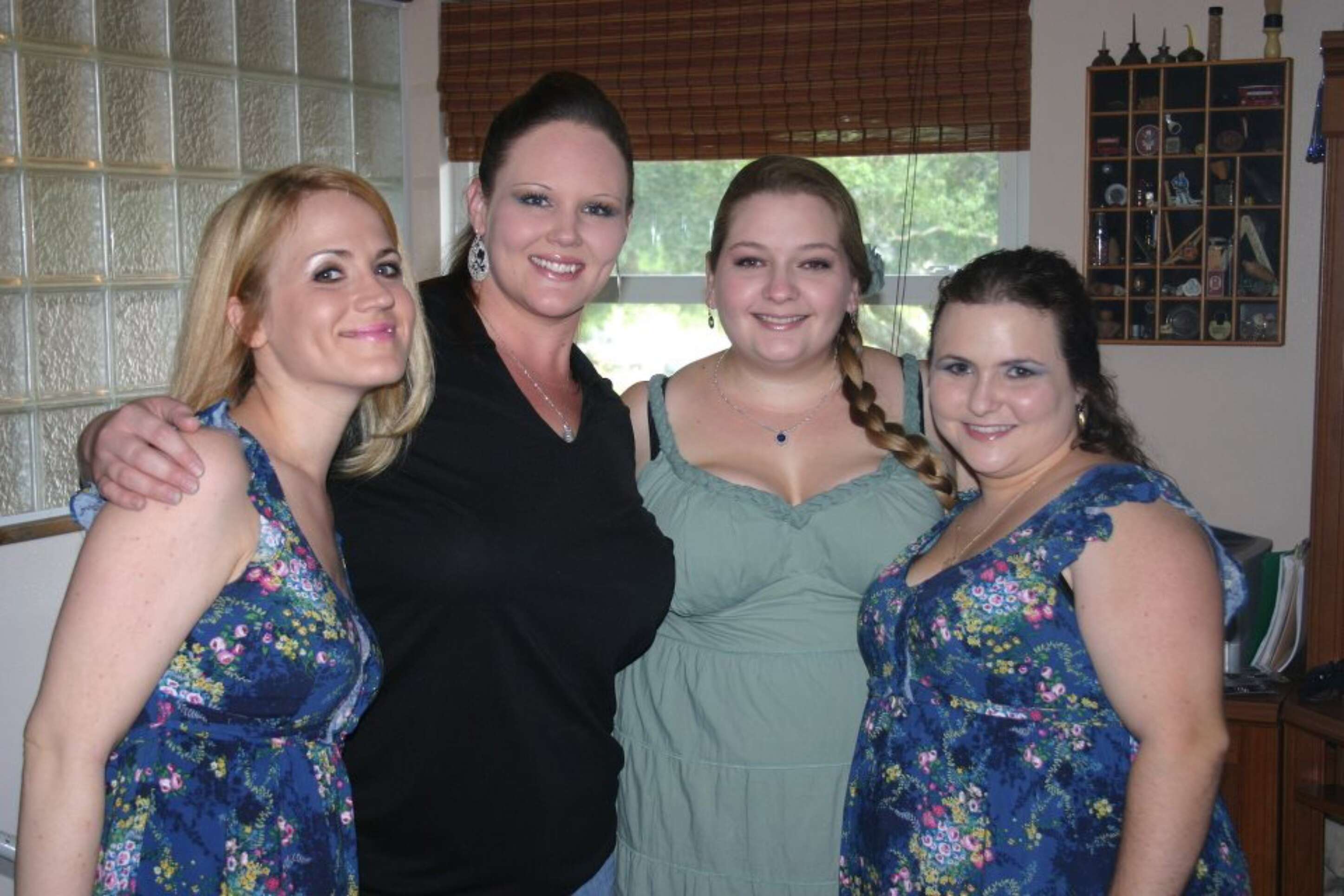Friends (from left to right): Tracy, me (in heels – I'm not tall), my sister-in-law Sarah, and Mara, 2011
Throughout the pandemic lockdowns, I had two conflicting feelings happening at the same time: internal peace, and internal and external chaos.
Throughout the pandemic lockdowns, I had two conflicting feelings happening at the same time: internal peace, and internal and external chaos.
It took me a while to nail down why both, outside of the given: we live small with a family of five because the city is our backyard, and our home is just a place to rest and keep our crap in. But with two of our household members having an autoimmune disorder, we took the pandemic very seriously and stayed away from people for a solid year and a half.
Being stuck in a small space with five people and a dog is a recipe for chaos.
But peace came from the sense of selectivity.
I found myself naturally reaching out to only the friends and family I wanted to connect with, and inadvertently letting the other relationships fade out.
I also didn't have to deal with anyone I didn't want to deal with — random people trying to make conversation, random interactions that could stray outside my wheelhouse of expected small-talk; having to see people I didn't like because someone I do like likes them; et cetera.
And now that the world is a little closer again, I take that gained selectivity and try to apply it as much as possible to life outside of home.
If I'm not with my family on the city bus, I read a book — I acquire something desirable from the travel time, and it discourages people from speaking to me more so than being on a phone does. If I'm not in the mood to converse with baristas, I'll order coffee from a mobile app and just slide in and pick it up, waving thanks instead of actually speaking. And I've finally learned to say "no, thank you" to events I don't want to attend (basically anything that has more than eight people — did I mention I also discovered over the pandemic that I'm an ambivert-leaning-more-toward-introvert?).
But, deep down, I love connection. Especially when it’s around special interests — a phrase commonly used within the Autistic community. “Special interests” means hobbies or interests that we essentially obsess about.
So a couple months ago I sought out my old writing groups on Meetup and some Autistic adult groups, and joined some local houseplant groups online.
The Autistic groups have been phenomenal. I feel such a connection with some of the people there, and actually have an upcoming outdoor coffee date with a fellow Autist this Friday.
I feel like I'm really contributing to the group's plethora of differing and even similar experiences and knowledge-base.
Overall, I found that I do like socializing — it wasn't just a mask I slapped on to cover up my Autistic traits from being noticed. I enjoy social events when it's with the right people for me, and especially when the “theme” (e.g. special interest / hobby group, etc.) is based around something I care about.
Whether you're an introvert, an extrovert or an ambivert, we can't deny the positive effects of quality social connection.
And although I know every area is different and existing groups near you may be inaccessible, I’ve found that online and Meetup groups have been the best places to start deeper social connections. Far more than any bar-meet or random social interaction has brought to fruition; for me, at least.
So, how do you connect with others? How do you build and sustain your community? And could a Meetup group fill a void in your life that other methods of meeting people have left unfilled?
You may need to be the person to pioneer a whole new group in your area — one that brings people together over a common interest from far and wide.
I’ve started and parted with groups, attend a couple in-person, and totally utilize Zoom Meetups when that’s all there is or that’s all the energy I can muster at the time. And although the in-person meets have been more energizing for me, a virtual one can fill the social void just enough, too.
My best,
Sara
get the | Content Strategy Planner
support my work and | buy me a coffee
visit the website | segwrites.com
And here are 4 more things this week:
- The Psychology of Schemas: Why Our Childhood Can Mess Us Up [YouTube] by Dr. Tori Olds.
- The Ambiguous Loss of (Probably) Not Selling My Novel by Danielle Lazarin (a fantastic short story author) on LitHub.
- Wings and Fleas: When It’s Too Expensive To Escape Abuseby Quinisha Jackson-Wright, on The Audacity on Substack.
- “The greatness of a community is most accurately measured by the compassionate action of its members.” —Coretta Scott King
